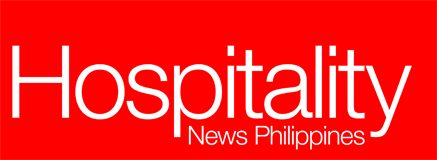
Despite the newly imposed 19% tariff on imported goods from the United States, hospitality stakeholders interviewed at the recent Philippine Hotel Owners Association’s PHConnect Summit remain unfazed, with many saying it will have minimal to no impact on their operations.
Hotel 101 Cluster General Manager Charley Magabo emphasized that their focus is on the domestic market, which remains unaffected by the tariff changes.
“We have yet to see any significant impact. Our main focus is the domestic market, which drives our developments in places like Davao and Cebu,” Magabo said. “As for culinary, we work with third-party suppliers to address F&B needs, and we simply adjust our packages to reflect any increase. It’s about targeting the right segments—higher-yield markets or volume-driven lower rates.”
“On the contrary, Hotel 101 is investing in the U.S., contributing to job creation there,” added fellow executive Brian Ong.
David Pardo de Ayala, General Manager of Discovery Primea, shared a wait-and-see perspective.
“The high tariff may be offset by a weakening U.S. dollar, which could lower the cost of U.S. goods. Any real impact will take time to reach the ground level, and as of now, we haven’t felt it,” he noted.
While Discovery Hotels uses some U.S. products, GM Pardo said their operations have grown less dependent on them over time.
“Years ago, U.S. beef was the gold standard—but now, countries like Canada are offering the same high-grade quality at better price points. I’ve become a convert to Canadian beef. There will always be a market for U.S. beef, but we’re no longer reliant on just one source.”
El Nido Resorts Group Director of Sales and Marketing Joey Bernardino added that El Nido Resorts sources its products locally—even their steaks. “We don’t really buy U.S. products,” he said.
Similarly, Gel Gomez, Group General Manager of Admiral Hospitality, noted that their group consciously supports local and Asian suppliers. “We do not purchase U.S. goods because our focus is on supporting regional producers.”
Arjun Schroff of Schroff Travel, and current president of the Philippine Tour Operators Association, shared that the increased tariff has little to no bearing on the tour sector.
Chroma Hospitality Country Manager James Montenegro echoed this sentiment, saying they avoid direct imports from the U.S.
“Our goal is to source as much as possible locally. The only product we occasionally get from the U.S. is beef. But if prices rise, we have viable alternatives—Australia, for instance, offers great quality beef. It’s just a matter of adjusting ingredients and methods. Overall, the consumption of U.S. goods is too minimal to make a real dent. No big deal.”
Bobby Horrigan, CEO of Horrigan Hospitality, even injected some levity:
“Nineteen percent is still better than twenty,” he said. “I don’t see any major effect. It’s still lower than what other countries have been hit with. It’ll be status quo—the economy will continue to perform well.”
He acknowledged that many hotels do buy U.S. products, but stressed that the price adjustment will be passed on to consumers.
“We also source from countries like Australia and Argentina. If their tariffs are lower, we’ll simply shift purchasing to them.”




